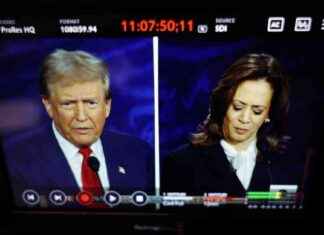Villar has disassociated himself from the management of these funds, alleging that he had institutional and non-executive functions over the arbitrators.
MADRID, 17 Abr. (EUROPA PRESS) –
The one who was president of the Technical Committee of Referees (CTA) Victoriano Sánchez Arminio has accepted this Monday his right not to testify before the judge of the ‘Soule case’, who had cited him as being investigated for the alleged diversion of 8 million euros during his time at the head of that institution.
This is confirmed by legal sources consulted by Europa Press, who add that the other two mentioned, the former president of the Royal Spanish Football Federation (RFEF) Ángel María Villar and the worker of this institution Raúl Massó — who was technical secretary of the CTA– they have responded before the judge in their appearance to separate themselves from the management of the investigated funds.
Villar, these sources explain, has asserted that he in the RFEF had institutional but not executive functions in relation to the referees, and that those 8 million did not have a finalist character so the CTA could allocate them to whatever it wanted. For his part, Massó would have declared before Judge Alejandro Abascal that he did not have any functions over that game either and that the person who handled it was Sánchez Arminio.
The statements, which have been aired in a matter of an hour, occurred within the framework of the ‘Soule case’ in which the National Court investigates the alleged irregularities in the management of Villar at the head of the federation.
The instructor opened to summon them, against his initial criteria, after the Criminal Chamber agreed with the Anti-Corruption Prosecutor and ordered it. And all because of an appeal from the Professional Football League that refuted Abascal’s decision to keep Sánchez Arminio and Massó as witnesses.
In the resolution of the Chamber it was indicated that it was appropriate to take a statement as investigated, “without prejudice to the future precision regarding the existence of evidence, since what is convenient at this time is to verify if there are indications of possible criminal responsibility and if those indications are attributable to the persons whose declaration is requested by the League”.
For the Chamber, the fact that they had previously testified as witnesses is not an obstacle to their subsequent change of condition, becoming investigated. “It is only the existence or not of rational and sufficient evidence of criminality that has to determine whether or not the request for the incorporation of the people cited as investigated should be addressed.”
The order, dated March 13, included the arguments of La Liga, which denounced that the procedures carried out resulted in “the existence of a large volume of payments manifestly unrelated” to the conventional purposes for which La Liga provided certain funds. to the RFEF.
It indicated that these payments were made by virtue of an ‘Arbitration Agreement regarding the application of the possible surplus generated as a result of the funds transmitted by the League to the RFEF’. And it focused on the fact that this agreement was “reached and documented by people without attribution or competence” for them.
It also pointed out that this action was carried out “behind the back” of La Liga, so that those who were the president and secretary of the CTA on the date of the events (Sánchez Arminio and Massó) “provided their agreement and ordered the payment of a series of invoices” with funds from La Liga. “Expenses completely unrelated to professional football, thus altering the destination of the funds delivered by the League to the RFEF,” added La Liga.
The Public Prosecutor’s Office, in its letter concerning the accusation of Sánchez Arminio, explained that La Liga receives funds from the collection of the pools, the control and monitoring of which is entrusted to the Follow-up Commission on the Participation of the Sports Pools, dependent on the Superior Council of Sport (CSD), without prejudice to the financial control functions carried out by the General Comptroller of the State Administration (IGAE).
And that one of the obligations established by means of an agreement of the aforementioned commission from the 2004/2005 financial year is that this contribution of public money be used to cover the payment of arbitration rights for official football competitions, and that any other type of of obligation to defray through that remainder will require the prior communication and favorable agreement of the aforementioned commission.
For this reason, coordination agreements were made between La Liga and the RFEF, by virtue of which, the former delivers contributions to the RFEF, the latter assuming its management, without any consideration.
The order of the Second Chamber also included that the prosecutor pointed out that the expert reports carried out in the proceedings conclude that the contributions made by La Liga corresponding to arbitration fees exceed the expenses recorded by the RFEF in the sum of 7,999,013.18 euros, corresponding to these concepts, indicating that this difference is not justified and that such funds have not been used for their purpose.
“And from what has been instructed, there are indications that, in the decision to allocate such funds to other types of expenses, different from those provided for in the agreements, both the president and the technical secretary of the CTA would have intervened,” concludes the Public Ministry.







